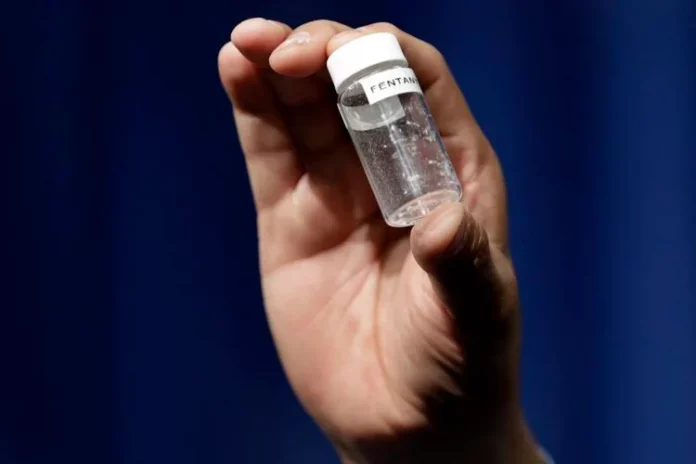
A nonprofit organization’s analysis of government data estimates drug overdose deaths increased 1.7% in 2023 to reach a new record high.
The CDC estimates that more than 111,000 Americans died from a drug overdose in the 12-month period that ended in April. More than 77,000 of those deaths involved fentanyl and other synthetic opioids other than methadone. Both are record highs and increases over the prior year, according to Families Against Fentanyl.
The Families Against Fentanyl analysis of CDC data found that illicit fentanyl and other synthetic opioid deaths increased 4.9%.
The report comes as federal, state and local governments are working to reduce opioid deaths.
Oregon had the highest rate of increase in fentanyl deaths in the nation, with a one-year increase of more than 67%, compared to a national average of 4.9%. The state also ranked second highest in the nation for increases in overdose deaths overall, with an increase of 23%, according to the Families Against Fentanyl report.
In Washington, overdose deaths increased by over 34%, the highest one-year increase in the nation. Washington also ranked second highest in the nation for increases in fentanyl deaths, with an increase of 65%, according to the Families Against Fentanyl report.
Families Against Fentanyl previously asked President Joe Biden to designate illicit fentanyl as a weapon of mass destruction to reduce fentanyl deaths, which have doubled in 30 states in two years.
Fentanyl, which is 80 to 100 times more potent than morphine, is used daily in hospitals around the country for everything from epidurals during childbirth to pain management for cancer patients. However, illicit fentanyl is driving the country’s overdose epidemic. Illicit fentanyl is primarily made in foreign labs. It is then smuggled into the United States, most often through Mexico, according to the U.S. Drug Enforcement Administration. Illicit fentanyl is often mixed with other drugs or made into pills made to resemble prescription opioids.













